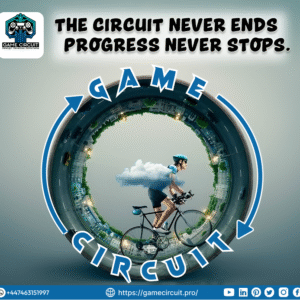In 2025, the question “Does Google prefer long-form content or short answers?” has become much more complex. With AI-powered search results, shifting user behavior, and stricter content-quality standards, success in search depends not just on word count — but on usefulness, context, and trust. For marketers, businesses and creators (especially those serving local markets like Vancouver), understanding when to publish deep long-reads and when to deliver crisp short answers is crucial.
Why Word Count Alone Doesn’t Cut It
Google has repeatedly stressed that its ranking systems prioritize helpful, people-first content — not pages built just to game algorithms. Under the hood, multiple signals guide this: meaning, relevance, user satisfaction, and trustworthiness.
In practice, that means a 300-word answer can outrank a 2,000-word post — if it addresses the query precisely and satisfies the user need. Conversely, a long article full of fluff and generic info may under perform.
Thus, length alone is no longer a reliable proxy for quality or ranking power.
The AI-Driven Shift: Short Answers Become More Powerful — But Risky
A major shift in 2024–2025 has been the wide rollout of Google AI Overviews (previously known as SGE / Search Generative Experience). This feature uses AI to generate a summary to answer a user’s query directly on the search page.
These AI Overviews give users quicker, often complete answers — sometimes eliminating the need to click through to a website. That convenience has changed search behaviour: users encountering AI summaries click on traditional search links far less often.
So what does this mean for content creators?
- Short, well-structured content — especially FAQ-style pages or succinct answers — becomes more likely to be used as sources or cited by AI summaries.
- But there’s a downside: many sites see reduced click-through rates (CTR), fewer page views, and potential loss of traffic.
- In such an environment, simply producing more content isn’t enough. The focus must shift to being useful, authoritative, and trustworthy.
When Long-Form Content Still Rules
Even with AI Overviews and shifting patterns, long-form content remains a key asset — particularly for complex topics or areas requiring depth. Here’s when it works best:
- Complex or multi-faceted topics — When a subject involves nuance, multiple steps, context, or requires background explanation, long-form content allows you to flesh out every angle, address follow-up questions, and provide thorough guidance.
- Building authority and expertise — In 2025, Google’s content-quality framework emphasizes the value of genuine expertise and trustworthiness (the E-E-A-T model: Experience, Expertise, Authoritativeness, Trustworthiness). Long-form pieces — especially those drawing from first-hand experience or deep research — help demonstrate that.
- Supporting internal linking structure — Long-form “pillar” content offers a foundation that can link to and support multiple smaller pieces (e.g., short blog posts, FAQ pages, local-service pages). This helps distribute authority across your site.
- Attracting engaged readers — When people land on in-depth content, they’re more likely to read longer, spend more time on page, and engage with your brand — huge for conversion, trust-building, and long-term SEO value.
- For service-based businesses — say you run a company offering web development Vancouver services — long-form guides, case studies, detailed service breakdowns or “how-we-worked” stories allow you to show expertise, differentiate from competitors, and build trust with prospective clients.
Short, Concise Content Still Has a Place — Especially for Quick Needs
Short-form content, or “short answers,” can be surprisingly powerful when used right. These include definitions, quick how-tos, FAQs, and pages meant to address immediate user needs. Here’s why they still matter:
- Fast answers for quick queries or transactional intent — Users typing “best local SEO Vancouver agency” or “how to reset WordPress password” often don’t want a 2000-word tutorial — they want a clear, direct solution.
- Optimized for featured snippets and AI Overviews — Well-formatted, concise answers with headings, bullet lists and clear structure are more likely to be pulled into AI summaries, voice search results, or snippet boxes.
- Mobile and voice-search friendly — Many users now search via mobile or voice; quick answers cater perfectly to their expectations.
- Frequent updates or local content — For local businesses or services (such as SEO Vancouver or local service pages), concise pages make it easier to update pricing, availability, or contact info quickly.
Thus, short content works well when you want to satisfy a straightforward need or grab immediate visibility — especially when combined with a larger content strategy.
A Balanced Content Strategy for 2025
Given the changing landscape, a hybrid content strategy — mixing long-form depth with short, answer-focused pieces — is increasingly the smart choice. Here’s how to do it well:
- Use long-form “pillar” content as the foundation. Craft comprehensive guides, expert-level articles, case studies, or in-depth analyses that showcase your authority and cover a topic thoroughly. Use these as hubs.
- Produce short, focused pieces for FAQs, quick answers, or updates. Let these pages address specific questions, definitions, or local concerns. Make them easy to read, well-formatted, and optimized for snippet-style consumption.
- Interlink aggressively. Link your short posts to the appropriate pillar page, and vice versa. This strengthens your site’s internal authority structure and helps both users and crawlers navigate easily.
- Prioritize usefulness, authenticity, and experience. Whether long or short, base your content on real expertise, first-hand knowledge or solid research. Avoid fluff, generic regurgitations, or content solely aimed at search engines. This aligns with Google’s “people-first” approach and its E-E-A-T and helpful-content guidelines.
- Structure for both readers and AI. Use clear headings, bullet points, numbered lists, summaries, and schema where appropriate. This helps both human readers and AI-powered search engines digest and surface your content effectively.
- Monitor performance but focus on real value. Don’t obsess over word-count metrics. Instead track user engagement, time-on-page, bounce rates, and conversions. Also watch whether your content gets referenced in AI summaries or snippet boxes.
What This Means for Local & Service-Based Brands
For businesses operating in a competitive locale — say offering web development Vancouver or SEO Vancouver services — mixing long-form and short-answer content can be a major differentiator:
- A thorough long-form guide on “Choosing the Right Web Development Approach for Vancouver Startups” can position you as an expert with deep local understanding, infrastructure knowledge, and client-friendly solutions.
- Short, FAQ-style pages like “What does a Vancouver web development company charge?” or “How long does SEO take in Vancouver?” can meet urgent user queries and capture attention quickly — potentially being featured as snippet answers or in AI Overviews.
- Together, this hybrid approach helps you serve different types of search intent (information, comparison, decision), attract both first-time visitors and returning clients, and build trust over time.
In short: you won’t win just by writing more. You win by writing right.
The Real Bottom Line: Google Favors Usefulness, Not Word-Count
In 2025, neither long-form nor short answers get an automatic boost simply because of their length. What matters is how well the content serves the user’s intent, how reliable and trustworthy it is, and how clearly it’s presented.
Google’s ranking systems — shaped by initiatives like the Helpful Content Update and recent AI-search changes — reward content that is helpful, original, well-structured, and honest.
For creators, marketers, and local businesses (like those offering web development or SEO services in Vancouver), the winning strategy is not “longer content equals higher rank.” Instead, it’s a blended approach: deep, comprehensive content combined with clear, succinct answers — all built around real value, real expertise, and genuine audience benefit.




